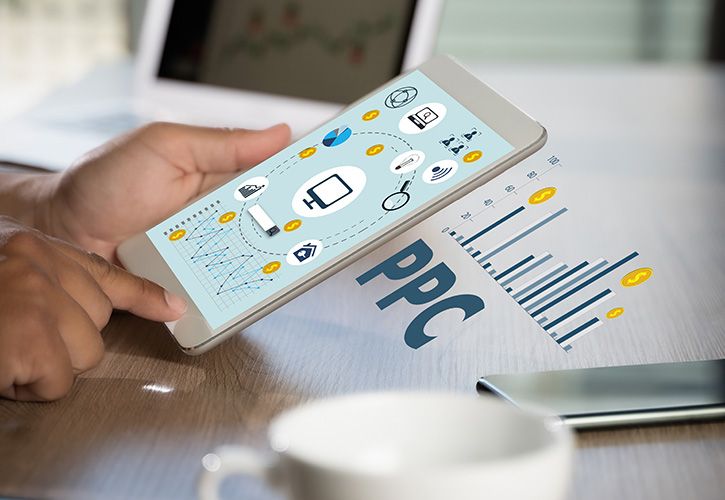UK DIY News
Does Your Paid Search Need A Little DIY?

Globally, 93%(1) of retail and consumer goods advertisers use paid search, and so the idea that their paid search may not be fulfilling its potential is unlikely to be a new one. Yet many are unsure how to address the issue. The DIY sector has fared well during the pandemic, with total DIY expenditure rising by 16.5% in 2020(2), and so it may be tempting to avoid the problem in the short-term. However, marketers should be careful not to overlook significant inefficiencies that may be hiding behind sales figures.
Polishing campaign strategies
It makes sense to start with a thorough analysis of existing campaigns. Are campaigns differentiating between seasonal and all-weather products, so that seasonal products are not promoted all year round? Are regional differences being taken into consideration, to account for climatic or demographic variation?(3) Is ad copy being revised frequently to respond to post-pandemic behaviours? Customers may no longer be searching for hot tubs(4) and pancake recipes(5) in the same numbers as before, but office chairs are likely to remain in demand for some time.
This regular finetuning is essential: one study of 2,000 PPC accounts found that that the average PPC account is producing all of its sales from just 12% of its keywords!(6) However, the overall approach needs to be much more sophisticated. Paid search has eliminated the personalisation of customer interaction that was the driving principle behind CRM systems, resulting in all members of a target audience being treated the same. This removes the importance of customer individuality and, critically from a marketing point of view, their individual value, loyalty and potential.
Valuating wasted paid search
To better understand the wasted paid search problem, Go Inspire Group conducted a series of control tests between 2018 and 2020, covering the behaviour of 500,000 consumers. The control tests were able to demonstrate typical proportional savings on paid search spend. The results were then extended over paid search budgets in a series of different markets to establish the value of savings obtained by optimising the approach to paid search.
The study estimated that the consumer goods sector wasted £96.2 million on paid search and the retail sector £144.3 million. These figures contribute to the total £728.9 million that UK businesses are wasting on ineffective paid search. These estimates are modelled using the lower end of the savings ranges revealed in Go Inspire Group’s control tests – which vary between 8% and 10% – and so are likely to be much higher.
Paving a way forward
How then can businesses optimize their paid search advertising and achieve greater personalization? Go Inspire’s study highlighted a few key areas to pay attention to when optimising paid search strategies.
- A holistic 360° customer view: This entails collating both offline and online data to ensure you have a complete understanding of your customers’ purchasing habits and can respond to their individual needs. This allows you to see exactly where your customer is on their customer journey and avoid presenting them with inappropriate marketing material, which is a waste of budget, but also may provoke a negative reaction from the customer. You can also determine when paid search advertising is most appropriate in the customer journey - if at all.
- Customer intent: If a customer is already looking for you organically, then bidding on your own brand name becomes wasteful. If the customer is searching for a competitor, then only does the paid search advert stand a chance of success. Without an understanding of customers’ intentions, marketers are simply stabbing in the dark, as customers visit sites for a number of reasons, such as to leave a review or buy an accessory.
- Capturing ‘phantoms’: Website visitors who have accidentally landed on your page via a click or thread may nonetheless respond to marketing messages if they have interacted with you in the past. It is, however, essential to be aware of the ramifications of delivering remarketing messages to phantom visitors who will not respond – usually about 75%. This can result in a drop in quality scores, subsequently raising your cost per click.
- Campaign optimisation: Drawing from your holistic understanding of customers and their evolving behaviours, you can regularly optimise and re-optimise messaging and promotions, ensuring you capture the best ROI from your paid search.
Though there are many tools available for businesses to build holistic customer profiles, less than 10% of companies have a 360-degree view of their customers according to Gartner. (7) Without this complete picture, businesses cannot then differentiate between behavioural segments, from low engagement to high engagement profiles. Only by building customer segments can companies then assess typical journeys and triggers, and understand which factors lead to increased purchase and loyalty, and where to focus their advertising efforts. This sound knowledge of the customer base ensures that paid search is always relevant and likely to produce a maximum return on investment.
Read Go Inspire’s report, ‘Which bit’s not working? An estimate of current wastage rates on paid search advertising’, here: https://www.goinspire.co.uk/whitepapers/which-bits-not-working/

Source : Written by Patrick Headley, CEO, Go Inspire Group (pictured above)
(1) Statista, Paid digital advertising channels used by advertising professionals in selected industries worldwide as of April 2018, 29 March 2021
(2) Mintel, UK DIY Retailing Market Report 2021, May 2021
(3) WordStream, 3 PPC Strategies to Out-Sell Your Home & Garden Competition, 4 August 2021
(4) Statista, Most searched home and garden related terms on Google during the COVID-19 outbreak in the United Kingdom (UK) from January to April 2020(in thousands), June 2020
(5) Statista, Most searched terms on Google relating to "things to do at home" during the COVID-19 outbreak in the United Kingdom (UK) from January to April 2020(in thousands), June 2020
(6) Digital Marketing institute, 5 Reasons PPC Campaigns Fail (And How To Avoid Them!), 16 February 2016
(7) SuperOffice, HOW A 360-DEGREE CUSTOMER VIEW WILL HELP YOU GROW YOUR BUSINESS, 8 February 2021
Image : juststock / iStockphoto.com (1262251924)
I find the news and articles they publish really useful and enjoy reading their views and commentary on the industry. It's the only source of quality, reliable information on our major customers and it's used regularly by myself and my team.











































